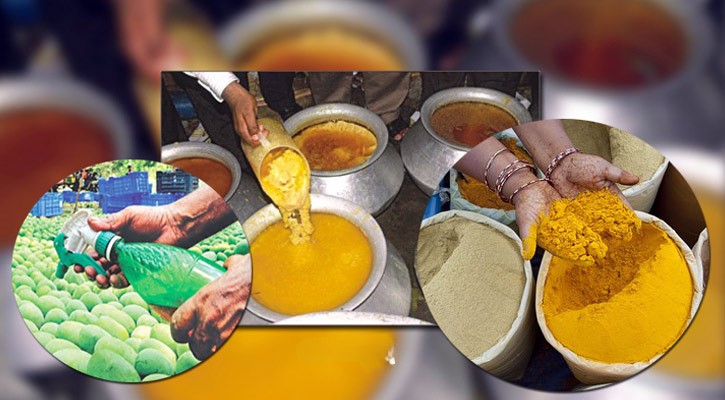The Unsettling Truth: A Deep Dive into Food Adulteration in India
By: Javid Amin
Imagine enjoying a glass of milk, only to discover it contains harmful detergents. This isn’t a dystopian nightmare; it’s a chilling reality for many in India, where food adulteration poses a serious threat to public health. A recent social media exchange has sparked outrage, lifting the lid on this widespread issue.
The Spark that Ignited a Firestorm:
The conversation began with a tweet by Ram (@ramprasad_c), an entrepreneur with a shocking revelation. Years ago, while working for a detergent company, a sales executive shared a disturbing fact. The executive claimed that a significant portion of their detergent sales weren’t for cleaning clothes, but for a far more sinister purpose: whitening and frothing milk.
Ram’s tweet resonated deeply with many users, garnering thousands of views and likes. This seemingly isolated incident served as a catalyst, prompting others to share their own unsettling experiences with adulterated food.
Beyond Milk: A Web of Deception in Food Production
Another user, Rocky Bhai (@Rockywill18), recounted a story from their friend’s peanut candy factory. A temporary cook, seeking to increase production and crispiness, resorted to a shocking tactic – adding dishwashing liquid to the candy mix. Thankfully, the deceit was discovered, and the entire batch was discarded. However, this incident highlights the vulnerability of the food supply chain and the lengths some may go to for profit.
Scientific Evidence: The Harmful Consequences of Adulteration
The claims of detergent use in milk aren’t mere anecdotes. A report by the Centre for Science and Environment (CSE) in 2012 confirmed the presence of detergents in milk samples. These adulterants pose a significant health risk, potentially causing food poisoning and irreversible damage to internal organs.
Further concerns were raised by the Indian Council of Medical Research (ICMR), which previously linked detergents in milk to gastrointestinal complications. In 2016, then Union Minister for Science and Technology, Harsh Vardhan, stated that a staggering two-thirds of Indians might be consuming milk adulterated with harmful substances like detergents, caustic soda, urea, and even paint.
Beyond Borders: A Global Concern
India’s struggle with food adulteration isn’t limited to its own borders. Popular spice brands like MDH and Everest were recently banned in Singapore and Hong Kong due to quality concerns. This incident underscores the far-reaching impact of food adulteration and the need for stricter regulations on a global scale.
The Fight for a Safer Food Chain: The Role of Authorities and Consumers
The Food Safety and Standards Authority of India (FSSAI) has initiated further investigations into the practices of spice companies like MDH and Everest. Penalties for “unsafe spices” are also being considered. These actions, while crucial, require sustained efforts to ensure a safe food supply chain.
Consumers also play a vital role in combating food adulteration. Here’s how you can contribute:
- Be Informed: Educate yourself about common adulterants in various food items and learn how to identify them.
- Buy from Reputable Sources: Purchase food products from trusted vendors, avoiding street vendors and loosely regulated markets.
- Look for Quality Certifications: Choose products with official food safety certifications like FSSAI or organic labels.
- Report Suspected Adulteration: If you suspect a product is adulterated, report it to the FSSAI or local authorities.
Building a Future of Food Safety: Collective Action is Key
Food adulteration is a complex issue with no easy solutions. A multi-pronged approach is needed to ensure food safety. Strengthening regulations, enforcing stricter penalties for offenders, and raising consumer awareness are all essential steps. By working together – authorities, consumers, and food producers – we can create a safer and healthier food chain for all.
A Call to Action: Empowering a Healthier India
The recent social media exchange has sparked a crucial conversation about food safety in India. This collective outrage needs to translate into action. By holding authorities accountable, demanding stricter regulations, and making informed choices, we can empower ourselves to create a future where the food we consume nourishes our bodies, not endangers them.




